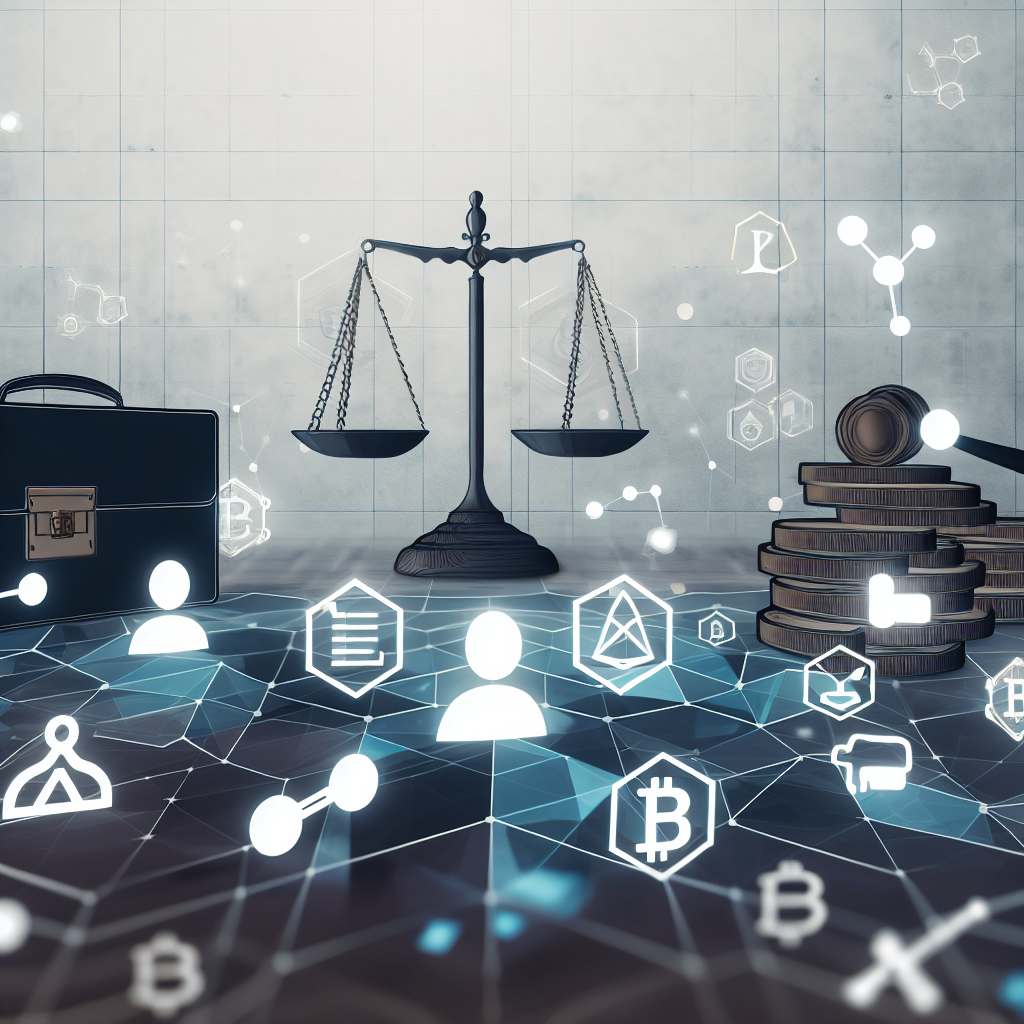
Blockchain for Regulatory Reporting: Legal Implications
Introduction
The advent of blockchain technology has revolutionized the way organizations approach regulatory reporting. Its decentralized and immutable nature offers unique opportunities for compliance and transparency. However, while the benefits of blockchain are apparent, legal implications must be carefully examined to ensure adherence to U.S., U.K., and UAE regulations. In this article, we will delve into the legal landscape surrounding blockchain for regulatory reporting, exploring how organizations can navigate the complexities of compliance while leveraging technology for greater efficiency.
Understanding Blockchain in Regulatory Reporting
Blockchain, at its core, is a distributed ledger technology (DLT) that allows multiple parties to access and verify the same information in real time. This aspect is particularly valuable for regulatory reporting, where accuracy and transparency are paramount. By enabling secure, real-time data sharing and minimizing the chances of human error or manipulation, blockchain holds incredible promise for compliance with regulatory requirements.
The Benefits of Blockchain for Regulatory Reporting
- Enhanced Transparency: Every transaction on the blockchain is recorded permanently, providing a clear audit trail that regulators can access to ensure compliance.
- Improved Data Integrity: The immutable nature of blockchain ensures that once data is entered, it cannot be altered or deleted without consensus, significantly reducing the risk of data tampering.
- Efficiency and Cost Savings: By automating reporting processes with smart contracts, organizations can reduce manual labor, speed up report generation, and subsequently cut down costs.
- Real-Time Reporting: Organizations can provide regulators with up-to-date reports in real time, enhancing accountability and fostering trust.
Legal Implications of Utilizing Blockchain
While blockchain technology presents numerous advantages, it is not free from legal challenges. Organizations must navigate various regulatory frameworks to ensure compliance. The following sections detail the key legal implications of using blockchain for regulatory reporting.
Data Privacy and Protection
Data privacy is a critical concern, especially in jurisdictions with stringent regulations such as the General Data Protection Regulation (GDPR) in the U.K. and the UAE’s Data Protection Law. Blockchain technology’s inherent transparency can complicate compliance with these regulations. Key concerns include:
- Right to Erasure: Individuals have the right to request deletion of their data, conflicting with blockchain’s immutable nature.
- Data Minimization: Regulations often require organizations only to collect data necessary for a specific purpose, which may be challenging when data is stored on a public blockchain.
Organizations must carefully assess how to employ blockchain in a manner that respects individual privacy rights while leveraging the benefits of this technology.
Compliance and Regulatory Standards
The regulatory landscape governing blockchain is still evolving. Organizations must stay abreast of existing regulations and engage early with regulatory bodies to understand compliance requirements. Potential issues include:
- Sector-Specific Regulations: Industries such as financial services and healthcare have unique compliance obligations that may affect how blockchain can be implemented for reporting.
- International Compliance Variances: U.S., U.K., and UAE regulations may differ significantly, necessitating careful attention to legal requirements across multiple jurisdictions.
Intellectual Property Rights
The introduction of blockchain solutions often entails the development of proprietary technology. Organizations must ensure that they protect their intellectual property while complying with relevant laws. Legal implications include:
- Patentability: Innovations stemming from blockchain applications may qualify for patent protection, yet the process of securing such rights can be complex.
- Licensing Agreements: When using third-party blockchain solutions, organizations must ensure that they enter into clear licensing agreements that address usage rights and responsibilities.
Best Practices for Legal Compliance
To navigate the complex legal landscape surrounding blockchain for regulatory reporting, organizations can follow best practices that align with compliance standards:
Develop a Clear Policy Framework
Organizations should establish comprehensive policies that address the use of blockchain technology. This should include procedures for data handling, reporting protocols, and compliance mechanisms. This framework should also detail how to manage data privacy concerns, ensuring adherence to legal standards.
Engage with Legal Advisors
Consulting with legal professionals who specialize in blockchain and regulatory compliance can help organizations mitigate risks. These advisors can provide guidance on navigating the legal landscape, ensuring that companies understand both the benefits and potential pitfalls of implementing blockchain solutions.
Implement Audit Mechanisms
Regular audits of blockchain implementations can identify areas of non-compliance and allow organizations to adapt their practices in real-time. An audit trail that aligns with regulatory reporting standards can enhance transparency and accountability.
Training and Education
Providing education and training on regulatory compliance related to blockchain for employees can foster a culture of compliance within an organization. Employees should understand how their roles contribute to compliance and how to properly manage data on blockchain systems.
The Consultant Global’s Role
At The Consultant Global, we understand the complexities surrounding regulatory compliance in relation to blockchain technology. With unique expertise in bridging cultural and legal landscapes, we are positioned to provide clients with tailored consulting services that ensure compliance across various jurisdictions. Our multi-lingual capabilities—fluent in English, Turkish, Azerbaijani, Russian, and French—allow us to serve a diverse clientele effectively.
We take pride in understanding our clients’ needs without wasting time or resources. Our experienced consultants leverage their international expertise to guide businesses in navigating the regulatory framework while maximizing the benefits of blockchain technology. As trusted advisors, we are dedicated to elevating our clients’ business capabilities, particularly in the GCC region, including the UAE, where compliance standards are evolving at a rapid pace.
Conclusion
Blockchain technology offers transformative potential for regulatory reporting, but organizations must tread carefully to navigate the legal implications. As the regulatory landscape develops, coupling innovative technology with compliance is essential for organizational success. By embracing best practices, engaging with legal advisors, and adopting a proactive approach to compliance, businesses can harness the advantages of blockchain while mitigating legal risks. With The Consultant Global as your trusted partner, you can confidently navigate the complexities of compliance and unlock the full potential of blockchain for regulatory reporting.




Leave a Reply